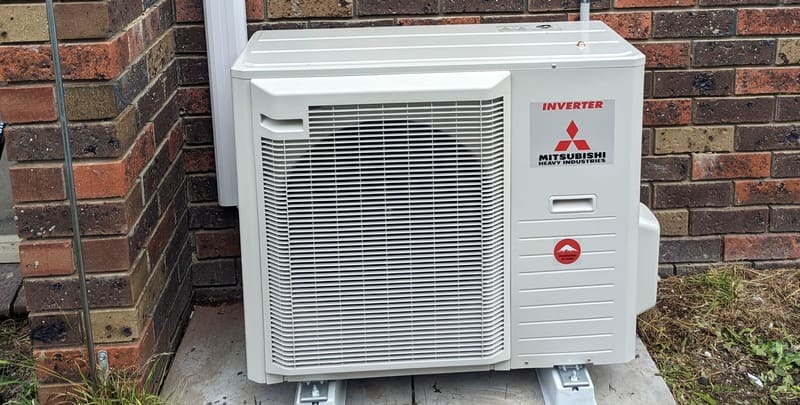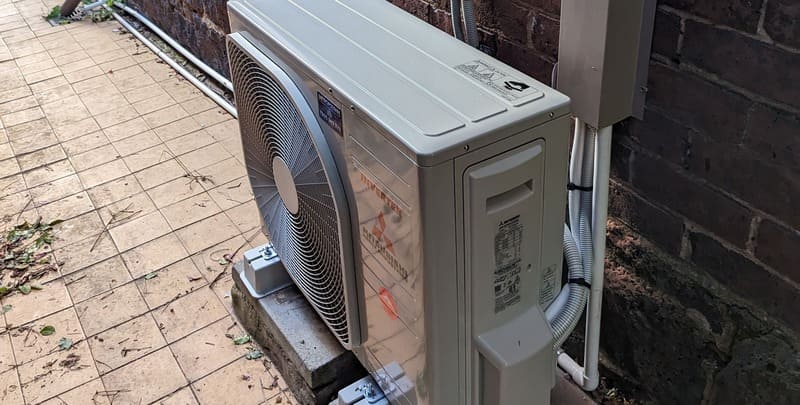
3 Things to Consider Before Buying a New Air Conditioner
Australia's scorching summers can make it unbearable to stay indoors without a reliable air conditioner. If you're in the market to buy a new heating and cooling system, several factors must be considered to ensure you make the right choice for your home and budget.
In this comprehensive guide to buying an air conditioner for climate control in Australian homes, we’ll explore the three crucial things you must consider before taking the plunge.
The Importance of Choosing the Right AC
Investing in the right air conditioner size is essential for creating a comfortable living environment, especially during the peak of summer.
A well-chosen air conditioning unit can contribute to energy efficiency, lower utility bills, and reduce environmental impact. Let’s delve into the critical considerations regarding air conditioner capacity you should keep in mind.
Choosing the right air conditioner is crucial for several reasons, as it directly impacts your comfort, energy usage, efficiency, and overall well-being.
Here are some key aspects highlighting the importance of selecting the right air conditioner:
- Energy efficiency: An energy-efficient air conditioner can significantly reduce your electricity bills. Modern air conditioning units often come with energy efficiency ratings, such as SEER (Seasonal Energy Efficiency Ratio) in the United States. Higher SEER ratings indicate outdoor units have better energy efficiency than central units.
- Proper cooling capacity: Selecting an air conditioner with the proper cooling capacity is essential. A used unit installed or a new air conditioner that is too small will struggle to cool your space, leading to increased energy consumption and wear and tear. On the other hand, an oversized unit may short cycle, leading to inefficiency, heat energy, and discomfort.
- Cost considerations: The initial cost of purchasing and installing a new unit of an air conditioner is a significant investment. Choosing the right unit-size air conditioner involves balancing upfront costs with long-term energy savings and overall performance.
- Environmental impact: Energy-efficient air conditioners save you money and contribute to a lower environmental impact. Reduced energy consumption means lower greenhouse gas emissions and a smaller carbon footprint.
- Comfort and performance: The right air conditioner should maintain a comfortable temperature and humidity level in your living or working space. Factors such as variable-speed technology, programmable thermostats, and zoning capabilities can enhance the comfort and performance of portable air conditioners.
- Durability and reliability: Investing in a reputable brand and model reverse cycle air conditioners ensures durability and reliability. A well-built air conditioner will likely have a longer lifespan and require fewer repairs, saving you money in the long run.
- Air quality: Some air conditioners have advanced filtration systems that can improve indoor air quality by removing dust, allergens, and pollutants. Considering the impact of air quality on health, buying an air conditioner with an air purification feature can be crucial.
- Compatibility with your space: The type and size of the room, as well as the space you want to cool, influence the air conditioner choice. Window units, split systems, central air conditioning, and multi-head split systems all have advantages and are suitable for different environments.
- Smart technology integration: Many modern air conditioners come equipped with intelligent technologies that allow remote control, scheduling, and integration of air conditioners with home automation systems. These features can enhance the convenience and energy efficiency of cooling appliances.
In summary, choosing the right air conditioner involves carefully evaluating your needs, the characteristics of your living or working space, how much power is used, and your budget constraints. By selecting a portable air conditioner unit that aligns with these factors, you can enjoy a comfortable environment, save money on energy costs, and contribute to a more sustainable future.

Things to Consider When Buying an Air Con
Here are three of the most important factors to consider when shopping for an air conditioner.
1. Climate Considerations
Australia is known for its diverse climate, ranging from the tropical north to the temperate south. The climate in your specific region can significantly impact the type of air conditioner you should choose.
- Coastal and humid areas: If you reside in a coastal or humid region like Brisbane or Sydney, you’ll want an air conditioner that excels in dehumidification. High humidity levels and warm air can make the air or indoor Unit feel more generous than it is, and a unit with effective dehumidification capabilities can enhance comfort.
- Dry and arid regions: For dry areas like Perth or Adelaide, evaporative coolers can be an excellent choice for outdoor or indoor units. These units add moisture to the air while cooling it down, providing relief without excessively drying out the air conditioners’ indoor environment one outdoor unit.
- Variable climate zones: A reverse cycle air conditioner is versatile in areas with variable climate conditions, like Melbourne or Canberra. It can cool without heated or ducted air conditioners and heat without air conditioning your home, ensuring year-round comfort.
2. Energy Efficiency
Australia strongly emphasises energy efficiency, and your choice of air conditioner can significantly impact your household AC unit’s energy consumption. Look for units with high Energy Star ratings to ensure the AC unit has optimal efficiency.
- Inverter technology: Consider air conditioners equipped with inverter technology. These units adjust the compressor speed based on the desired room temperature, minimising energy consumption by avoiding constant cycling of the air conditioning system.
- Zoning capabilities: Zoning allows you to cool specific areas of your home rather than the entire space. This saves your energy bill and allows for personalised comfort in different rooms.
- Seasonal Energy Efficiency Radio (SEER): SEER ratings indicate an air conditioner’s efficiency over a cooling season. Higher SEER ratings for air conditioning units translate to lower energy consumption. Aim for a used air conditioning unit with energy and SEER ratings that align with your budget and environmental goals.
3. Size Matters
Selecting the right-sized air conditioner is crucial for window air conditioners for optimal performance and efficiency − an undersized air con. The unit will struggle to get cool air into your home, while an oversized one can lead to short cycling, increased energy consumption and uneven cooling.
- Conduct a load calculation: Engage a professional to perform a load calculation, considering factors such as your home’s size, insulation, window placement target temperature, and local climate. This will help determine the ideal cooling capacity for your specific needs.
- Consider future additions: If you plan on expanding or renovating your home, factor in running costs for these changes when selecting an air conditioner. Ensure the new unit you choose can accommodate your future cooling needs.
- Ductwork inspection: If you opt for a complete ducted air conditioning system, inspect your ductwork to ensure it’s as good as system air conditioners. Leaks or inefficiencies in the ducts can compromise your air conditioner’s performance throughout.

Choose the Best for Your Home
Choosing a new air conditioner for your Australian home involves thoughtful consideration of your local climate, energy efficiency requirements, and the appropriate size of air conditioning unit for your living space.
By taking the time to evaluate these factors, you can ensure your new air conditioning unit is a comfortable and energy-efficient cooling solution that meets the unique needs of your household. Consider contacting professional services when you need help and to ensure you choose the right air conditioner for your home.
Please note: This information is provided for advice purposes only. Regulations differ from state to state, so please consult your local authorities or an industry professional before proceeding with any work. See Cyber Air Conditioning’s Terms & Conditions here.
